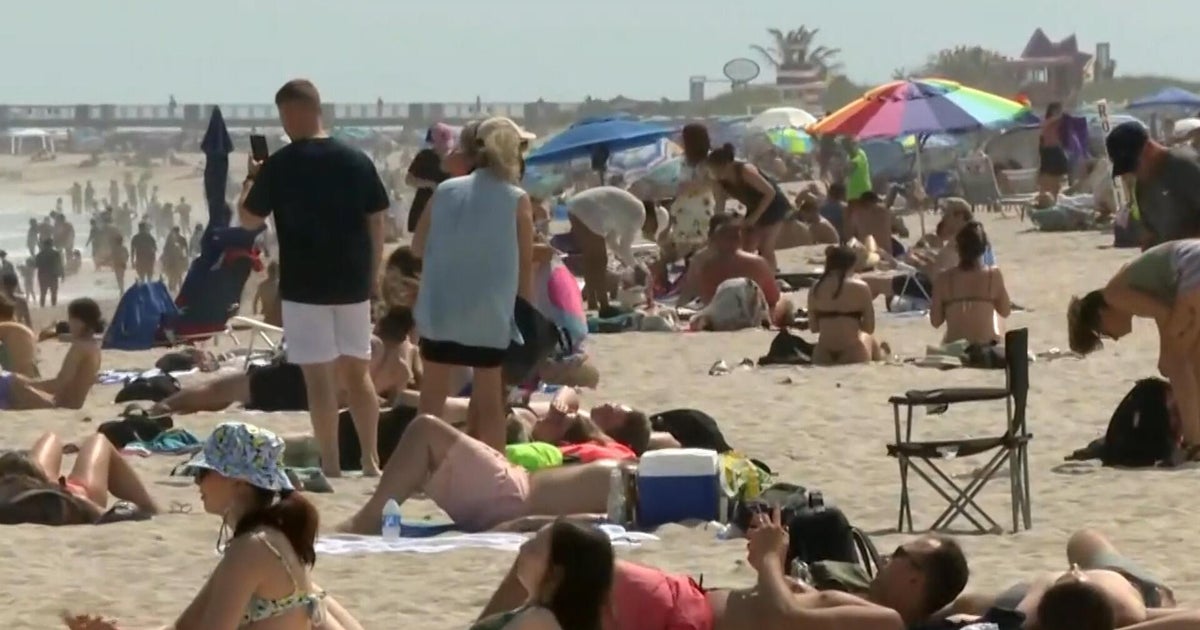Where can Americans travel? What to know about COVID-19 restrictions around the world
While the United States is still prohibiting many non-citizens from entering the U.S., many nations are allowing American travelers to visit. Every country has their own rules for entering, and some have restrictions or curfews within their borders.
American travelers have to follow U.S. rules to return home, which include getting tested for COVID-19 before the return flight.
Here's what you need to know about traveling internationally:
Current State Department travel advisories
The State Department has lowered travel advisories for dozens of countries from "Do Not Travel," to "Reconsider Travel" after the Centers for Disease Control and Prevention updated its travel guidance on June 7. Most countries in Europe, parts of Asia, and Canada and Mexico now have the lower advisory. Countries that remain on the "Do Not Travel" list include many nations in South America, Africa and the Middle East. Some of the travel warnings are for reasons other than COVID-19, including civil unrest in various parts of the world.
To see the latest updates on travel advisories, check the State Department and CDC websites. The CDC recommends people be fully vaccinated before traveling internationally.
Traveling back to the U.S.
If you decide to travel internationally, you'll have to get a negative COVID-19 test within three days of departure from the country you're returning from, or prove you have recovered from the coronavirus within the last 90 days. Currently, vaccination against COVID-19 does not exempt you from needing a negative test.
How to look up a specific country's restrictions
To find the latest entry requirements for any country, check this list on the State Department website, which links to U.S. embassy pages for every country. Each page has a section called "Entry and Exit Requirements," as well as information about the COVID-19 situation in the country.
Here's a brief overview of travel restrictions in different parts of the world:
Africa
Most countries in Africa are allowing American tourists in as long as they test negative for COVID-19 within three days of their departure from the U.S. Some, such as Ghana, require a health screening and possibly another test upon arrival.
The State Department warns against traveling to some African countries for reasons other than COVID-19, including terrorism and civil unrest.
Asia
Multiple countries in Asia have closed their borders to U.S. tourists, including Japan and India. China is allowing travelers who have valid residence permits and visas, but there are specific requirements for visas, and testing and quarantine protocols are also in place. South Korea and Thailand are letting American tourists in, but said they must provide proof of a negative COVID-19 test and quarantine upon arrival, among other requirements.
Australia and New Zealand
Neither Australia nor New Zealand are allowing tourists to enter.
Canada
Canada announced on July 19 that it will begin letting fully vaccinated U.S. citizens into the country on August 9.
Europe
Most countries in Europe are letting U.S. citizens enter as long as they provide proof of a negative COVID-19 test. Some nations, including Greece and Germany, are waiving testing requirements for U.S. travelers who show they are fully vaccinated.
Iceland had been allowing travelers who are fully vaccinated against COVID-19 to enter without a negative test, but beginning July 27, everyone coming to the country will be required to show a negative test.
Mexico, Central America and the Caribbean
Non-essential travel is restricted along the U.S.-Mexico border, but Americans can visit Mexico by plane. A negative COVID-19 test is not required to enter.
Most of the islands in the Caribbean require negative COVID-19 tests to enter and many have curfews in place. Some, including Aruba and The Bahamas, also require visitors to purchase COVID-19 health insurance. The Dominican Republic is one country that does not have a testing requirement, but rapid tests are performed on randomly selected travelers upon arrival.
Costa Rica is open to Americans without any testing requirements, but other Central American nations require negative COVID-19 tests before arrival.
Middle East
Israel and the United Arab Emirates are among the places allowing American tourists who meet certain requirements, including negative COVID-19 tests.
In addition to its COVID-19 travel advisories, the State Department warns against traveling to some countries in the Middle East for reasons including terrorism and civil unrest.
Russia
U.S. citizens are allowed to travel to Russia under certain conditions. A negative COVID-19 test is required.
South America
Most countries in South America have a "Do Not Travel" advisory from the State Department.
A few countries, such as Argentina and Chile, are closed to American tourists. Others, including Bolivia and Peru, are letting U.S travelers in, but each has its own testing, quarantine and curfew rules in place.



